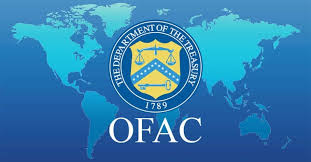Penalties for OFAC Violations
Violation of OFAC sanctions can result in heavy fines and criminal penalties.
Main penalties:
- Financial penalties: can be huge, depending on the violation.
- Criminal sanctions: in some cases, imprisonment.
- Asset freezes: blocking of financial resources of violators.
- Business restrictions: a ban on participation in international transactions.
Fines can reach tens of millions of dollars.
What is OFAC?
OFAC (Office of Foreign Assets Control) is a part of the US Department of the Treasury and is responsible for implementing economic sanctions to protect national security and support foreign policy. The main function of OFAC is to monitor the implementation of sanctions, such as blocking assets and prohibiting transactions with sanctioned persons and entities. OFAC also manages sanctions lists, such as the SDN.

What Are OFAC Sanctions?
OFAC sanctions are economic and trade restrictions on individuals and entities that threaten U.S. national security or violate international law. They include blocking assets, prohibiting financial transactions, and restricting participation in international transactions. OFAC manages lists, such as the SDN, to determine who is subject to sanctions.
Types of OFAC Violations
- Conducting Financial Transactions with Sanctioned Persons: This includes any transactions or agreements with individuals or entities that are on OFAC's sanctions lists, such as Specially Designated Nationals (SDNs).
- Sanctions circumvention: Any attempt to circumvent sanctions by using third-party companies or financial institutions to conduct prohibited transactions.
- Doing Business with Sanctioned Countries: Trading or investing with countries that are sanctioned by OFAC is also considered a violation.
- Failure to comply with asset freeze requirements: Failure to freeze or untimely freeze the financial assets of sanctioned persons.
Penalties for OFAC Violations
Violations of OFAC sanctions can result in heavy fines or criminal sanctions, including imprisonment. Fines can reach tens of millions of dollars. OFAC can also freeze assets or impose restrictions on the activities of violators. This negatively affects the reputation of companies and individuals, which can lead to a loss of trust of partners and customers.
Civil Penalties
Civil penalties for violations of OFAC sanctions can be severe. They are imposed on companies and individuals without criminal intent. Penalties depend on the seriousness of the violation and the number of transactions involved. They may include unblocked assets of or transactions with sanctioned persons.
Criminal Penalties
Criminal penalties for violations of OFAC sanctions are the most serious penalties. They apply when sanctions violations are accompanied by intentional acts or fraud.
Penalties for criminal violations can be significant. Maximum fines can reach millions of dollars. In addition, violators may be sentenced to imprisonment for up to 20 years.
Criminal sanctions can be imposed on individuals and companies if their activities are contrary to OFAC sanctions and involve fraud or evasion.

Voluntary Self-Disclosure and Mitigation
Voluntary disclosure of an OFAC sanctions violation may help reduce fines or other penalties. If a company or individual self-reports a violation before it is discovered, this may be taken into account as a mitigating circumstance.
OFAC may reduce fines or even waive criminal sanctions if the violator voluntarily discloses the violation and cooperates with the investigation. However, this does not guarantee complete relief from liability. It is important that the disclosure is complete and timely.
Factors Affecting Penalties
- The seriousness of the violation
- Cooperation with the investigation
- Previous experience of violations
- The degree of damage caused by the violation
Examples of OFAC Penalty Cases
- Fines for banks: A bank was fined millions of dollars for conducting transactions with sanctioned persons in violation of OFAC requirements.
- Companies that violated export restrictions: One company received a significant fine for supplying goods to a country under US sanctions.
- Terrorist financing: An individual organization was fined for financing terrorist groups in violation of OFAC sanctions.
How to Avoid OFAC Violations
- Check partners and customers for presence on OFAC sanctions lists, such as SDNs.
- Ensure that employees are trained on OFAC's sanctions policy and requirements.
- Regularly monitor transactions and agreements to identify suspicious transactions that may violate sanctions restrictions.
- Develop internal policies to ensure compliance with sanctions requirements and update them regularly.
How Our Lawyers Can Help with OFAC Violations
Our lawyers can provide important support in the event of an OFAC sanctions violation. They can help you understand complex sanctions requirements and ensure that you are complying with them.
Our lawyers can conduct compliance checks for your companies and clients to prevent sanctions violations. They can also help you identify potential violations and develop a strategy to remedy them.
If you have already violated sanctions, our lawyers can assist with voluntary disclosure of the violation to OFAC, which may reduce potential fines or sanctions. They can also help with mitigation by providing the necessary documents and arguments to reduce fines or eliminate criminal sanctions.